Hong Kong Para athlete: Daniel Chan
“If you chase a dream and pursue it in the right way, somehow, some day, you will achieve it.” He wasn’t born disabled, but lost his left leg after a car crash on Chinese New Year 12 years ago. After the accident and the resulting 20 operations, Chan said he was in a dark place until he found his way back into sport, which helped him to realise what he could achieve.
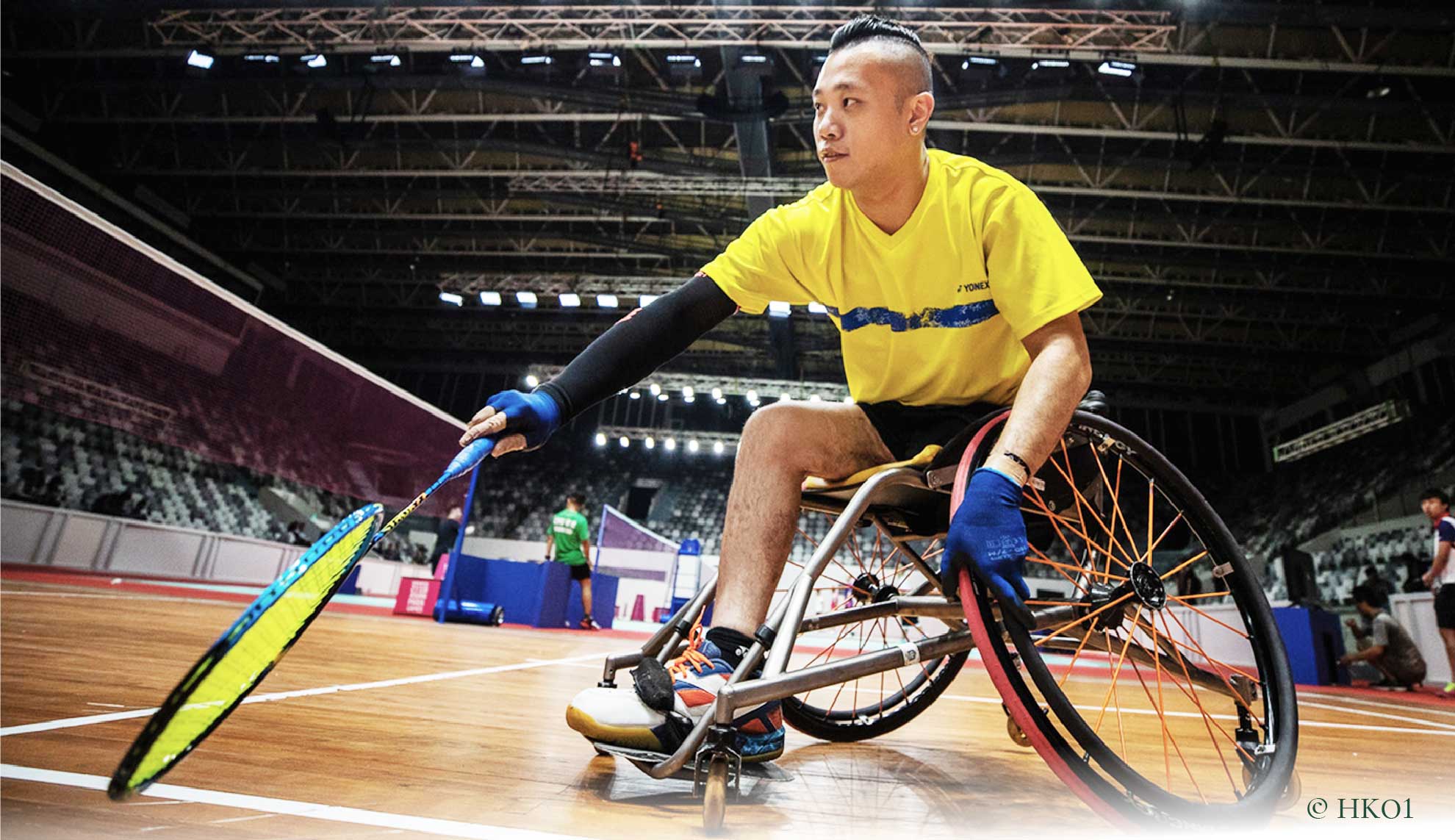
“It’s quite hard to accept suddenly becoming a disabled person. I remember at thatmoment I was ashamed to look at myself in the mirror,” he said in an International Paralympic Committee (IPC) podcast. “I would ask myself why I was so unfortunate.” He faced an additional challenge of having acquired his disability later in life, and being surrounded by stories of resilience and success in sport helped him massively. Chan’s example is just one story amongst many thousands of Para athletes, who show how the power of positive thinking has helped them to overcome disabilities and integrate into society.
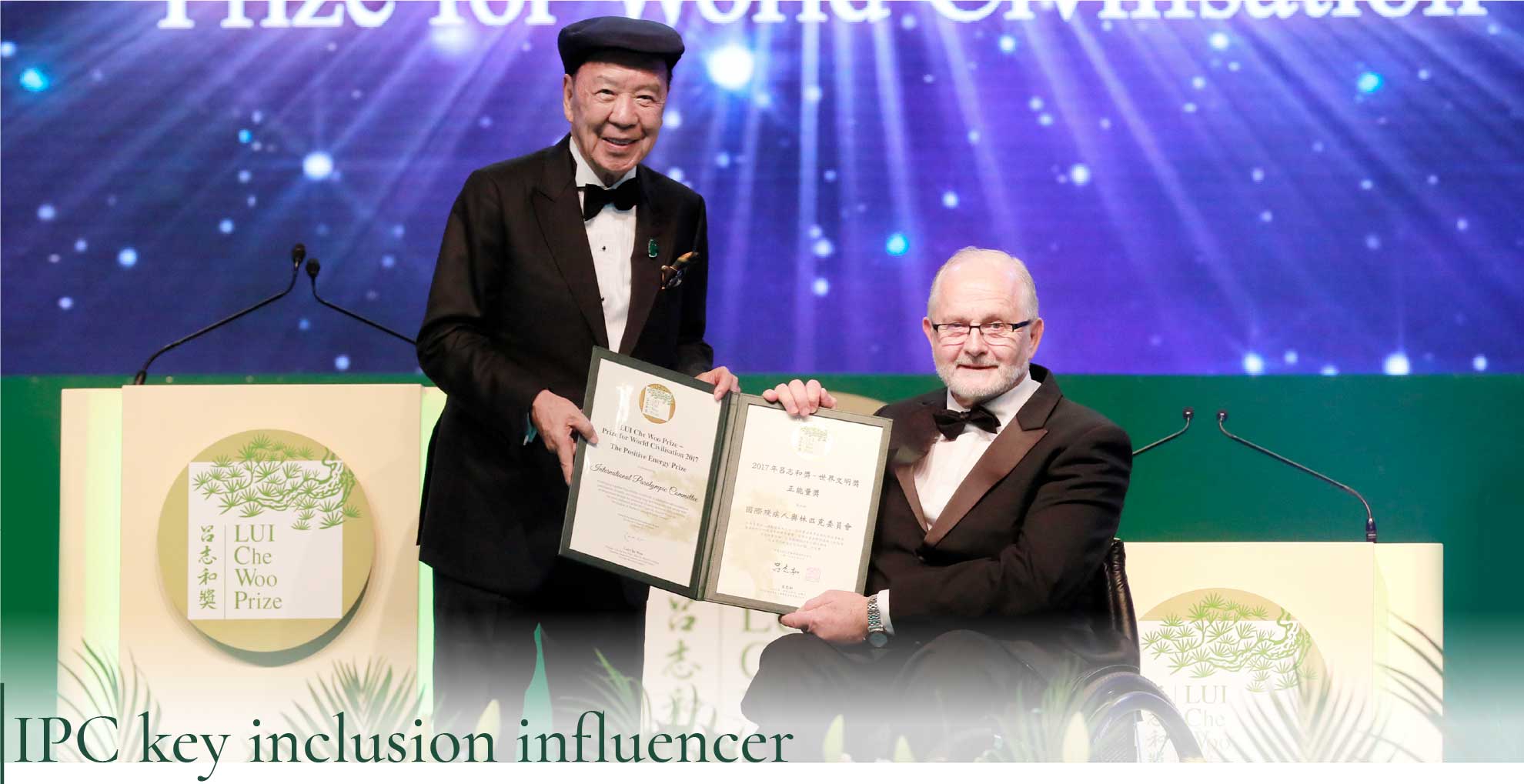
Dr Ludwig Guttmann
“The IPC is no longer seen as a disability organisation but a hugely respected and credible international sports organisation that has enriched the lives of millions around the world,” Sir Philip Craven, the former President of the organisation said on accepting the prize. The prize money was devoted to IPC’s development arm, the Agitos Foundation, and helped guarantee funding for awareness campaigns, education, training of coaches, classifiers and technical officials, research projects and equipment in both summer and winter sports.
Like the Para athletes, Agitos has been pushing ahead despite the pandemic to ensure that its message of inclusion and positive energy continues to spread. For example, through its I’mPossible movement, it continued to reach students through video conferencing, helping to uplift spirits and bring energy back into classrooms, which had been sapped by the stress of Covid.
National Paralympic Committee of Hong Kong
Hong Kong will be represented by a 64-member delegation at the games, which will begin on August 24. A total of 24 Para athletes will be competing in eight sports. One Hong Kong star whose life was changed through the Paralympic movement is now giving back to society and helping to support others as an administrative assistant in the HKPC&SAPD.
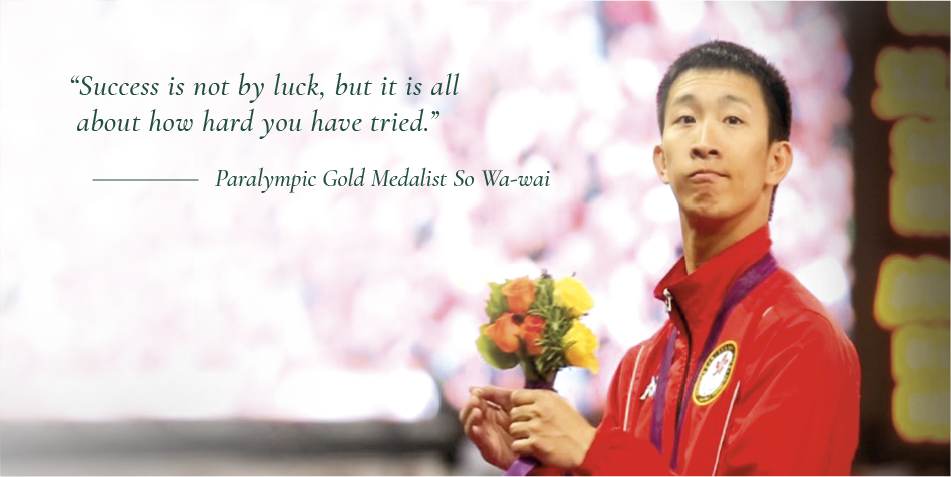
So Wa-wai
So Wa-wai, known as magic kid, has retired from running due to back pain after a career of 21 years took him to five Paralympic games, winning 12 medals. He was born with cerebral palsy and the doctors told his mother that she should give up as he would never walk.
However, he didn’t give up and although it took him to the age of four, he walked. Through positive mental energy and empowered by the support of his coach, who recognised his potential at the age of 10, he went on to win his first gold at the age of 19.
In his running career, he realised that winning was not the most important factor. It was more about determination, teamwork and doing his best. So has become a role model for many people in society due to his mental strength and perseverance. He adds “success is not by luck, but it is all about how hard you have tried.”
The International Paralympic Committee
The IPC is working every day with its more than 200 members to inspire, educate and promote inclusion, but it’s the four-year showcase Olympics that helps to fuel momentum.
Each event has marked a milestone in raising awareness and the growing media coverage attests to the popularity of the games.
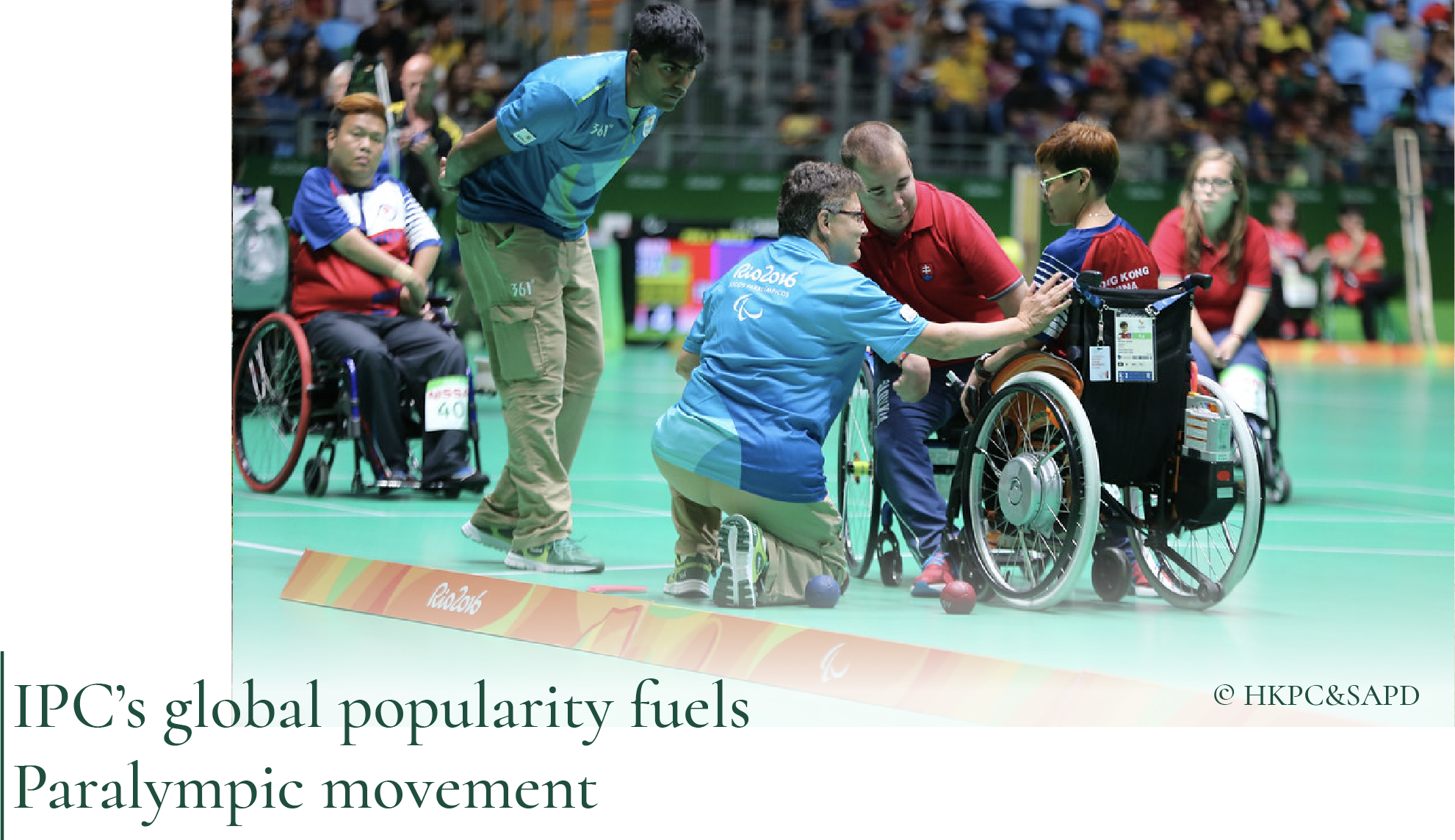
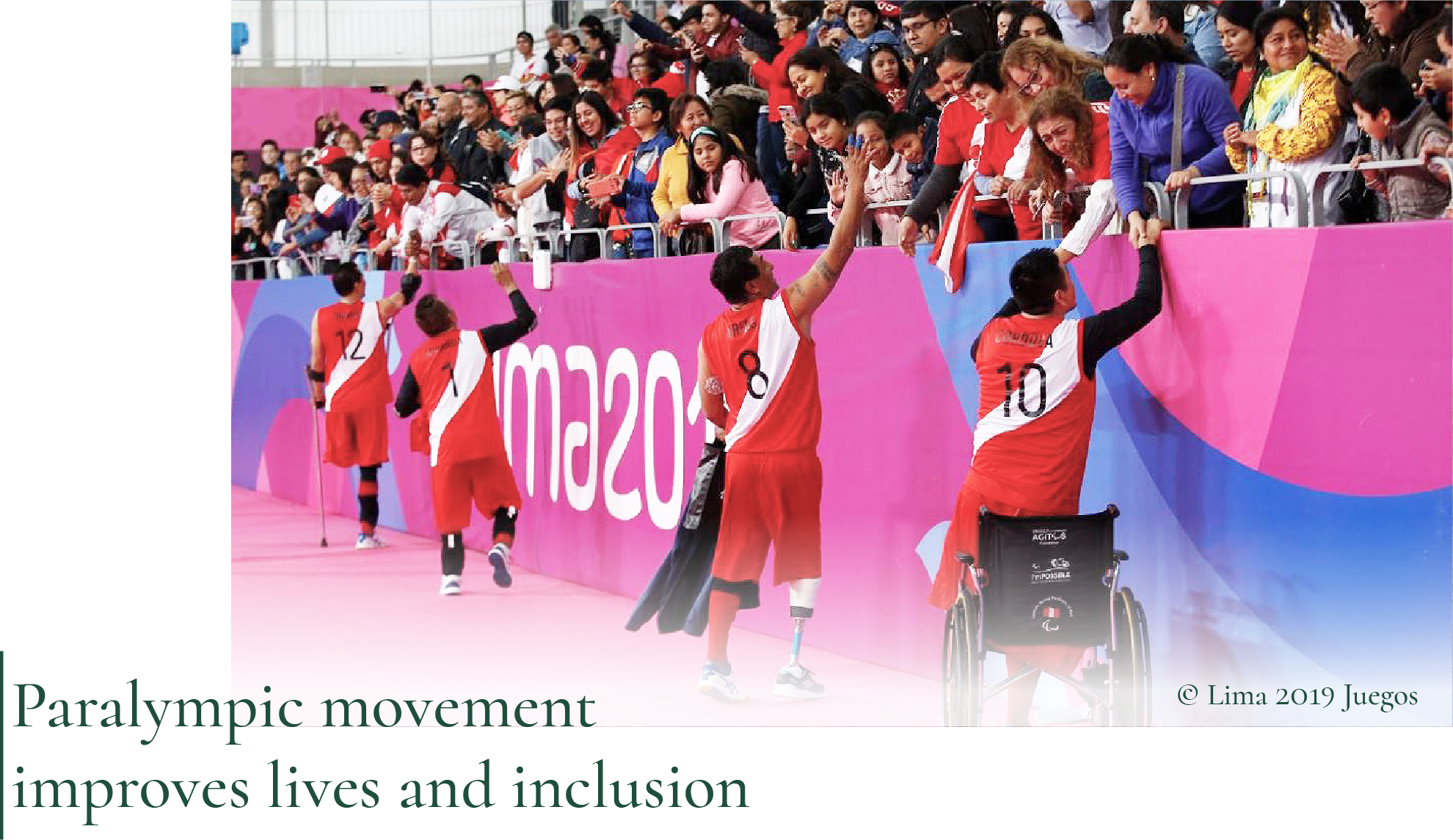
It’s now been just over 30 years since the first true Paralympic Games was held in Rome in 1960 and the movement has come a long way
During that first event, members of the army were on standby to assist the 400 Para athletes, often needing to carry them up flights of stairs as there was no provision for accessibility.
In Tokyo, four years later the games marked a greater acceptance of people with differing abilities and the greater provision of services and rehabilitation. After each successive game there has been increasing recognition and investment in improving lives.
Sir Philip Craven said it was in Beijing in 2008 that the IPC truly recognised the transformational capabilities of the Paralympics. In the seven years leading up to the games, the government spent RMB 1 billion to make 14,000 facilities accessible throughout China. That was more than the prior 20 years combined.
